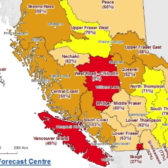Practical Financial Solutions: 10 ways post-secondary students can save money
As many high school graduates prepare head off to college or university for the first time, budgeting wisely will allow students to focus mostly on the classroom instead of worrying about finance.
Relieve some of that financial pressure now, enjoy a healthier bank account through your post secondary years, and perhaps graduate with less student debt by following these ten savings tips.
1. Consider the cost of where you lay your head at night Living in a residence or apartment can be a great experience but it is also very expensive. In 2009, the average cost of a four year degree for someone living away from home was $77,132, cpmpared to $51,763 for those living at home. So, by living at home, you could potentially save $25,000 or more*.
If you do decide to live away from home, sharing an apartment is usually cheaper than living on your own or in a dorm.
2. Investigate every possible income source Before applying for a student loan, check out scholarship or bursary possibilities from the school, provincial governments, foundations, religious groups, service clubs and civic groups – and at these websites: Canlearn.ca and Studentawards.com.
3. Budget realistically and don’t budge Start with the many expenses you’ll encounter during your school years – fixed costs such as tuition, books, accommodation, travel, food and variable costs like entertainment. Balance those costs against your known resources — RESP income, family contributions, personal savings and so on — and expected income from summer or part-time employment.
4. Manage your borrowing and debt If you do apply for a student loan don’t deepen your debt by requesting or accepting more money than you’ll actually need.
Credit cards are typically readily available to college and university students but they can drown you in debt. They can also be helpful in an emergency or for establishing a credit history. Make the responsible choice.
5. Don’t pay needless fees Universities often charge for a student medical plan but you can opt out of the school’s coverage when you’re covered by a parent’s plan.
6. Buy used textbooks A lot of learning is now done on e-devices but when you need traditional textbooks, buy used – and sell them at the end of the semester.
7. Take advantage of free or inexpensive programs Use the school gym or clubs and sporting events.
8. Eat economically If your tuition includes a meal card use it instead of eating at restaurants. If you’re not on a meal plan, cooking your own food saves money.
9. Shop economically Use your student card — look for businesses that offer student discounts. Shop around for bargains and use money-off coupons.
10. Make the most of government relief for students File a tax return to take advantage of tax deductions and tax credits for tuition fees, books, moving expenses, student loan interest, GST refunds and so on. Filing a tax return also allows you to build RRSP contribution room for the future.
Talk to a professional advisor about these and other strategies for relieving the financial stress of your education and for a sound financial future after graduation.
*Financial Consumer Agency of Canada: http://www.fcac-acfc.gc.ca/Eng/resources/publications/budgeting/Documents/TSTipstosa-Conseils.pdf
This column is sponsored by Roger Higgins, a BA, CFP Division Director for Investors Group in the Kootenays. For all your financial planning needs, contact Roger at 250-352-7777 of email at roger.higgins@investorsgroup.com

























